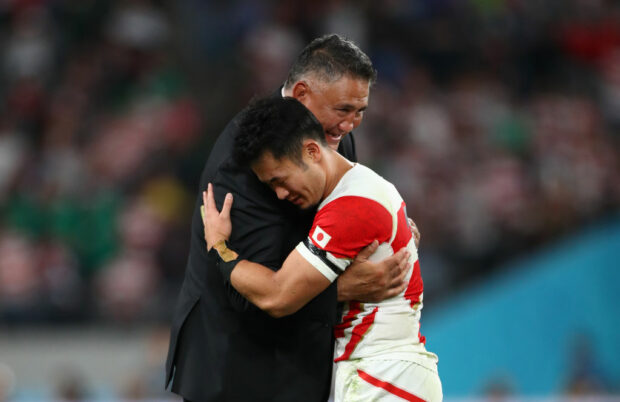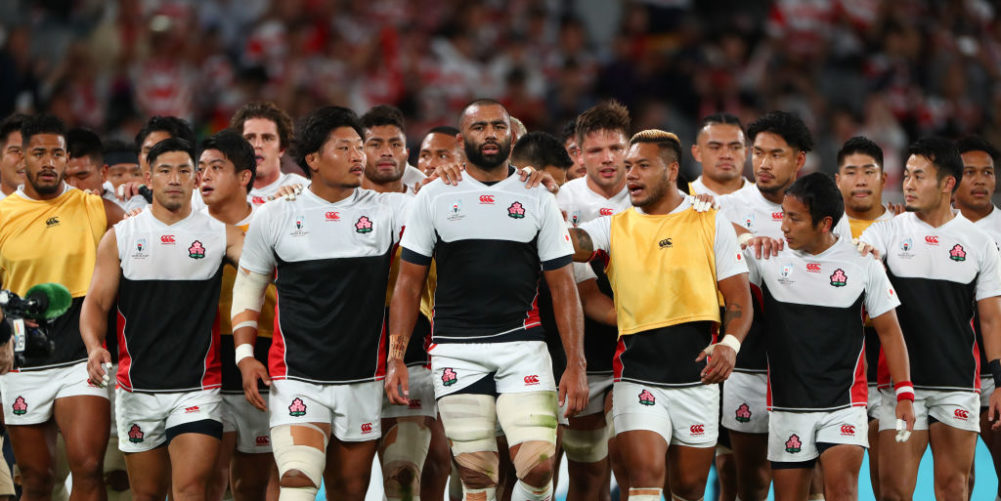If ever there was a sense of poetic justice in the game of rugby, it happened last Sunday when Japan beat a Scotland side that look more like a Tier 2 nation than their opponents.
A full bloodied game was made all the more exciting as everyone but the most one-eyed Scotland fans were supporting Japan as a result of unbelievable Scottish ignorance.
After days of turmoil with Typhoon Hagibis approaching and World Rugby showing how inept they are, a decision was finally made to cancel games rather than postpone or move them. A logical decision given the size and potential destruction the impending storm could have caused, with only one country, Scotland, escalating a disaster, into a farce.
The threat of legal action if Scotland weren’t allowed to play brought the eyes of the world down on Scotland as their self-centred concerns about not qualifying for the quarter-finals appeared to outweigh the potential and actual loss of life Hagibis delivered.
With Japan’s famous victory, World Rugby have since been sidestepping their responsibility in this matter, focusing all the blame on Scotland and threatening repercussions, which will probably be a fine of some sort.
The game itself was littered with mistakes but Japan made fewer than Scotland and were able to frustrate all of Scotland’s plans.
There were a few talking points in the game not least Jonny Gray’s tackle on Shota Horie, which although similar to both Tomas Lavanini on Owen Farrell and Bundee Aki on Ulupano Seuteni, (both resulting in red cards), saw no punishment at all, even after the match.
There was no doubt that Gray caught the head of Horie but, unlike the other two occasions, the referee accepted that the tackled player was dipping at the point of contact.
Personally, I think it was a sensible decision but it was in stark contrast to the decisions made in the other two games.
As usual when an underdog like Japan win a game there are sudden siren calls for a change in the structure of all competitions by those who really don’t know what they are talking about and should know better.
As much as it would be great on paper to bring in a form of promotion and relegation at international level that would allow teams such as Japan to compete in annual competitions like the Rugby Championship or the Six Nations, the financial implications of any such move would be catastrophic for all teams competing.
Let’s just say that Japan were to replace Scotland in the Six Nations. First that would involve a 12,000 mile round trip for the games to be played, roughly an equal distance to New Zealand should Japan join the Rugby Championship.
The cost of getting a team and all the backroom staff from Europe to Japan or vice-verse for a one-off game would place an unacceptable financial burden on that traveling team.
Then there would be the loss of the traditional historic fixtures like the Calcutta Cup and the extra revenue they bring for the countries competing. It would be unlikely that many fans would be willing to undertake such an epic journey for a one-off game reducing ticket revenues, potentially leaving stadiums half empty.
World Rugby’s Nations Cup was to include promotion and relegation but was voted down because it was obvious it would have meant financial ruin and possible decline of the game in any relegated country.
Just because Japan have done well in this World Cup doesn’t prove they are yet ready for an immediate inclusion in the elite competitions that basically finance the game of professional rugby, which could be destabilised by them joining.
Less we forget, the Six Nations and the Rugby Championship each added a country to their competitions years ago without either country (Italy or Argentina) yet able to consistently match the standards of the other competing nations.
Even at this World Cup, and despite the success of Japan, no other Tier 2 nation has come close to breaking the dominance of the foundation eight union teams.
The solution could be that World Rugby fund regional competitions with promotion and relegation to allow countries to develop the game against other nations within a reasonable travelling distance.

Japan could compete against many of the east European teams like Georgia, Kazakhstan, Romania, Russia and China on a regular basis if World Rugby were to finance such a competition to improve their standards and ‘brand’.
Making too much of Japan beating a weakened Ireland team and Scotland, could actually restrict the growth of the sport in Asia if they were to join either of the two elite competitions too early and fail.
England‘s quarter-final went as expected with the side using their power to beat up and hold up Australia to create penalties and enough space for their back three to use their speed, particularly Jonny May, to take advantage.
A good showing against the first foundation team they’ve played, now it’s on to the semi-final and the All Blacks.























